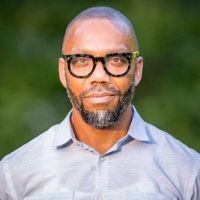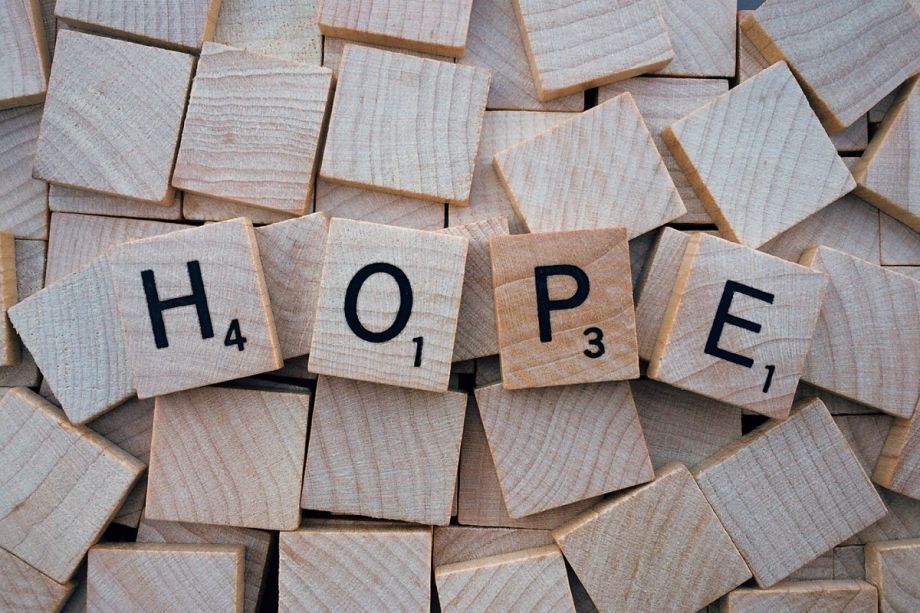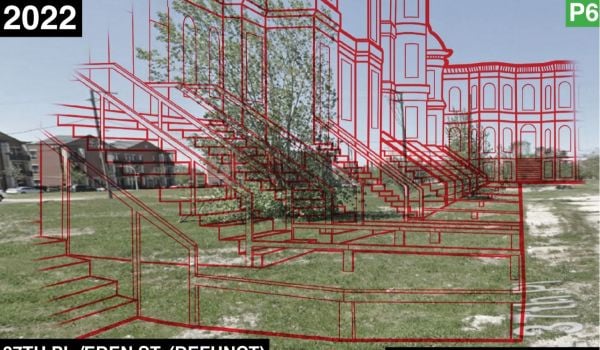“You’ve had a hard time in some interviews expressing a sense of hope that things will get better in this country,” late-night host and comedian Stephen Colbert said to best-selling author and MacArthur fellow, Ta-Nehisi Coates, in early October. “Do you have any hope tonight for the people out there, about how we could be a better country, we could have better race relations, we could have better politics?”
“No,” Coates bluntly replied. “But I’m not the person you should go to for that. You should go to your pastor. Your pastor provides you hope. Your friends provide you hope. … In better times the president of the United States provides you hope.”
If it’s hope that you want, shift your gaze to the pragmatists in our cities and neighborhoods across this country who pursue their vision for a better world each and every day — inherent in their work, evidenced by the progress they’ve made, supported and appreciated by the communities around them. The light at the end of the tunnel has always rested in the on-the-ground efforts of community activists, teachers, voter registration volunteers and, yes, in better times, preachers and presidents.
Take Elizabeth Lindsey, executive director of Byte Back, a nonprofit organization that “provides high-quality technology training for low-income adults,” in Washington, D.C. Lindsey is fully aware the technology boom has been less than a fizzle for low-income black folk, especially for those who don’t have Apple, Google, Stanford or Berkeley on their resumes. Black people make up less than 5 percent of the pale male tech industry, which falls in line with a long, deleterious history blacks have had with technology, starting with the cotton gin. Lindsey also knows that tech companies in cities pose more threats for underrepresented folks in the form of rent increases, gentrification and general discrimination than they do opportunities. The resurgence of cities in the last decade has not necessarily generated more social inclusion.
“The future of equality is at stake,” says Lindsey, who refuses to allow data of the past to dictate what happens to her clients in the future. Lindsey sees prospects in companies like Amazon, which is in the midst of a competition to choose a new headquarters, because she actually sees progress among the people she serves.
“They may struggle to feed their families or get to work, but they have incredible drive and brilliance,” says Lindsey, noting that many of her clients have quickly become hirable. Given access to opportunities, “they can be the face of the tech world.”
Admirers longing for Coates to deliver a silver lining is symptomatic of the white supremacy he describes. Coates shouldn’t wring out optimism any more than social scientists and economists, who also offer bleak projections. As someone who reviews race outcomes at a think tank, I can attest that Coates’ apparent lack of cheeriness is reasonably in line with the social determinism of race and class.
When my Brookings colleagues Richard V. Reeves and Edward Rodrigue examined centuries-old income disparities passed on from one generation to the next resulting in a $36,898 median household income for blacks in 2015, compared to $62,950 for whites, we didn’t ask them to add the sunny side of the data. Economist Raj Chetty’s research constantly reveals that race and class are fatalistic. Chetty and his colleagues found the top 1 percent of women and men in terms of wealth live about 10 and 15 years longer than those in the bottom 1 percent. When is the last time Chetty was asked to be a national healer?
Researchers and methodologists are better at conveying current states as opposed to what can be. Society needs to know the painful history and systems that led to where we are or we’ll be condemned to repeating it. Coates’ work is exceptional in this regard. The yearning for future optimism specifically from Coates subtly reveals an obvious lack of respect for critical race theory and historical analyses as transmitters of truth. But we need Coates the same way we need Reeves, Rodrigue and Chetty — no more, no less.
The left loves Coates’ analyses but considers them unfinished. Liberal America’s strange relationship with Coates is symbolic of its relationship with people of color. After feeling pain, guilt and discomfort that comes from the current state of race in America, which is often depressing, Coates’ fans/critics expect him to release the pain that comes from knowing one’s own privilege and contribution to white supremacy.
In the aggregate, change is hard to come by. Racial disparities persist. Mass incarceration and limited social mobility among black people should depress us. But people like Lindsey continue to build upon the work of civil rights leaders, policymakers and urbanists who made incremental changes for the people they served. There is hope within the struggle.
Let’s be clear. Coates is not your friend. He isn’t your psychologist or pastor either (ahem, most of your black friends aren’t). Coates is a theorist who arrives at many of the same conclusions of other notable researchers whom we don’t ask to assuage our emotions. We should accept Coates’ insistence to not look to him for hope.
And let’s stop casting every influential black scholar in the role we’ve typecast as Martin Luther King Jr. Justice provides hope. Good-paying jobs and affordable housing inspire. Making every voter and vote count is something to look forward to. Let’s look to the community activist, educator, voter registration volunteer, progressive policymaker and tech trainer who see and believe in a new world. These are the people who deserve our gaze.
Also remember that Lindsey doesn’t need hope as much as she needs the resources to operate at scale commensurate with need. She isn’t as much motivated by hope as she is encouraged by the proof her participants can perform. If more us did the same, we wouldn’t have petty conversations about the need for optimism.

Andre Perry is a senior fellow at Brookings Metro, where he leads the Valuing Black Assets Initiative (VBAI) team. A Next City board member, his research focuses on race and structural inequality, community engagement, education, economic inclusion and workforce development.
















